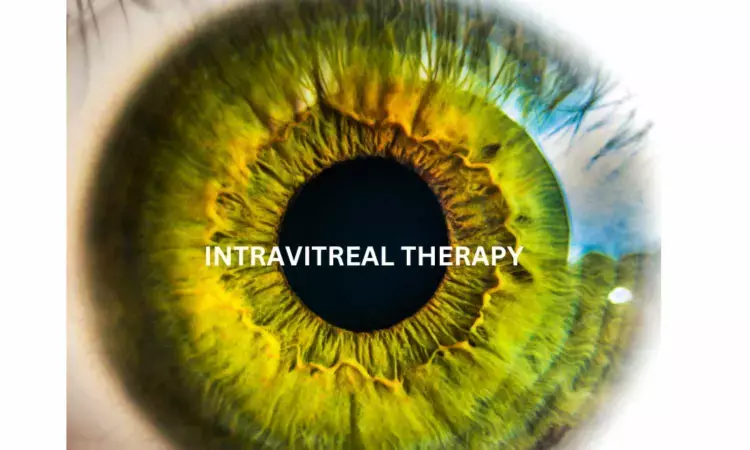- Home
- Medical news & Guidelines
- Anesthesiology
- Cardiology and CTVS
- Critical Care
- Dentistry
- Dermatology
- Diabetes and Endocrinology
- ENT
- Gastroenterology
- Medicine
- Nephrology
- Neurology
- Obstretics-Gynaecology
- Oncology
- Ophthalmology
- Orthopaedics
- Pediatrics-Neonatology
- Psychiatry
- Pulmonology
- Radiology
- Surgery
- Urology
- Laboratory Medicine
- Diet
- Nursing
- Paramedical
- Physiotherapy
- Health news
- Fact Check
- Bone Health Fact Check
- Brain Health Fact Check
- Cancer Related Fact Check
- Child Care Fact Check
- Dental and oral health fact check
- Diabetes and metabolic health fact check
- Diet and Nutrition Fact Check
- Eye and ENT Care Fact Check
- Fitness fact check
- Gut health fact check
- Heart health fact check
- Kidney health fact check
- Medical education fact check
- Men's health fact check
- Respiratory fact check
- Skin and hair care fact check
- Vaccine and Immunization fact check
- Women's health fact check
- AYUSH
- State News
- Andaman and Nicobar Islands
- Andhra Pradesh
- Arunachal Pradesh
- Assam
- Bihar
- Chandigarh
- Chattisgarh
- Dadra and Nagar Haveli
- Daman and Diu
- Delhi
- Goa
- Gujarat
- Haryana
- Himachal Pradesh
- Jammu & Kashmir
- Jharkhand
- Karnataka
- Kerala
- Ladakh
- Lakshadweep
- Madhya Pradesh
- Maharashtra
- Manipur
- Meghalaya
- Mizoram
- Nagaland
- Odisha
- Puducherry
- Punjab
- Rajasthan
- Sikkim
- Tamil Nadu
- Telangana
- Tripura
- Uttar Pradesh
- Uttrakhand
- West Bengal
- Medical Education
- Industry
Dexamethasone surpasses ranibizumab and methotrexate for intravitreal treatment of AMD

Intravitreal drug delivery recently gained importance in past years and has become the gold standard for treatment of many retinal diseases, including neovascular age-related macular degeneration (AMD), diabetic retinopathy, and retinal vein occlusion.
A dexamethasone implant significantly surpassed ranibizumab (Lucentis) and methotrexate for intravitreal treatment of persistent/recurrent uveitic macular edema, according to results of a recent randomized trial published in journal Opthamology.
The MERIT Trial conducted by Dr. Nisha R. Acharya, MD, MS and team evaluated the effectiveness of 3 different intravitreal treatments for persistent or recurrent uveitic macular edema (ME): dexamethasone implant, methotrexate, and ranibizumab.
The trial was Single-masked, randomized controlled clinical trial. Patients with minimally active or inactive uveitis and persistent or recurrent uveitic ME in one or both eyes were included in the study. Patients at 33 centers were randomized 1:1:1 to receive 1 of the 3 therapies. Patients with bilateral ME received the same treatment in both eyes.
The primary outcome was measured at 12 weeks, reduction in central subfield thickness (CST) expressed as a proportion of baseline (CST per CST at baseline) assessed with spectral-domain OCT by readers masked to treatment assignment. Secondary outcomes included improvement and resolution of ME, change in best-corrected visual acuity (BCVA), and elevations in intraocular pressure (IOP).
The key findings of the study are
• A total of 194 partcipants (225 eligible eyes) were randomized to dexamethasone (n = 65 participants and 77 eyes), methotrexate (n = 65 participants and 79 eyes), or ranibizumab (n = 64 participants and 69 eyes).
• All received at least 1 injection of the assigned treatment. At the 12-week primary outcome point, each group showed significant reductions in CST relative to baseline: 35%, 11%, and 22% for dexamethasone, methotrexate, and ranibizumab, respectively.
• Reduction of ME was significantly greater in the dexamethasone group than for either methotrexate (P < 0.01) or ranibizumab (P = 0.018).
• Only the dexamethasone group showed a statistically significant improvement in BCVA during follow-up (4.86 letters; P < 0.001).
• Elevations of IOP by 10 mmHg, to 24 mmHg or more, or both were more common in the dexamethasone group; IOP spikes to 30 mmHg or more were uncommon overall and were not significantly different among groups.
• Reductions in BCVA of 15 letters or more were more common in the methotrexate group and typically were attributable to persistent ME.
Researchers concluded that “At 12 weeks, in eyes with minimally active or inactive uveitis, dexamethasone was significantly better at treating persistent or recurrent ME than methotrexate or ranibizumab. Risk of IOP elevation was greater with dexamethasone, but elevations to levels of 30 mmHg or more were infrequent.”
Reference: Acharya NR, et al "Intravitreal therapy for uveitic macular edema -- Ranibizumab versus methotrexate versus the dexamethasone implant: the MERIT trial results" Ophthalmology 2023; DOI: 10.1016/j.ophtha.2023.04.011.
MSc. Neuroscience
Niveditha Subramani a MSc. Neuroscience (Faculty of Medicine) graduate from University of Madras, Chennai. Ambitious in Neuro research having worked in motor diseases and neuron apoptosis is interested in more of new upcoming research and their advancement in field of medicine. She has an engrossed skill towards writing and her roles at Medical dialogue include Sr. Content writer. Her news covers new discoveries and updates in field of medicine. She can be reached at editorial@medicaldialogues.in
Dr Kamal Kant Kohli-MBBS, DTCD- a chest specialist with more than 30 years of practice and a flair for writing clinical articles, Dr Kamal Kant Kohli joined Medical Dialogues as a Chief Editor of Medical News. Besides writing articles, as an editor, he proofreads and verifies all the medical content published on Medical Dialogues including those coming from journals, studies,medical conferences,guidelines etc. Email: drkohli@medicaldialogues.in. Contact no. 011-43720751


